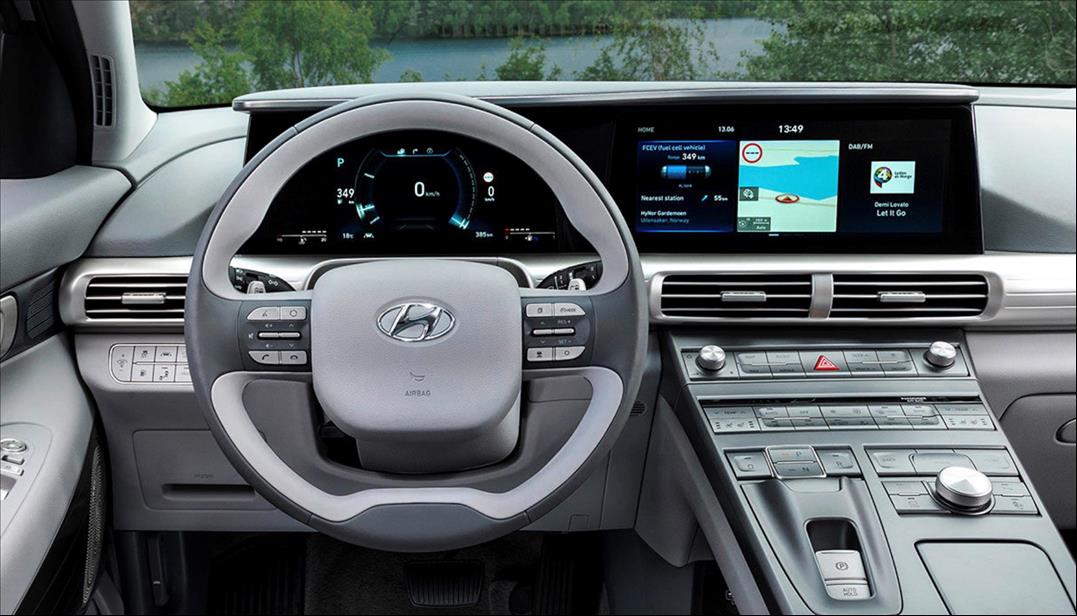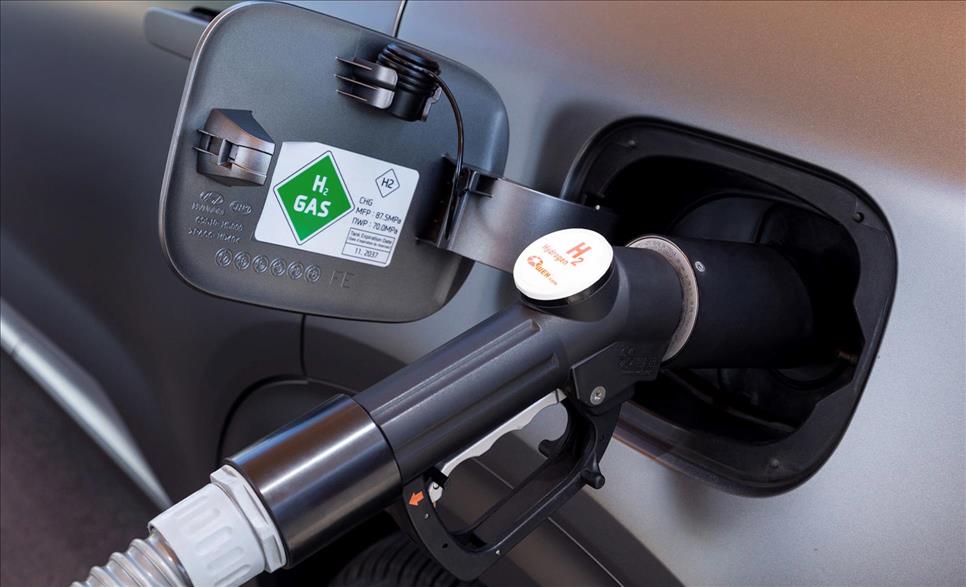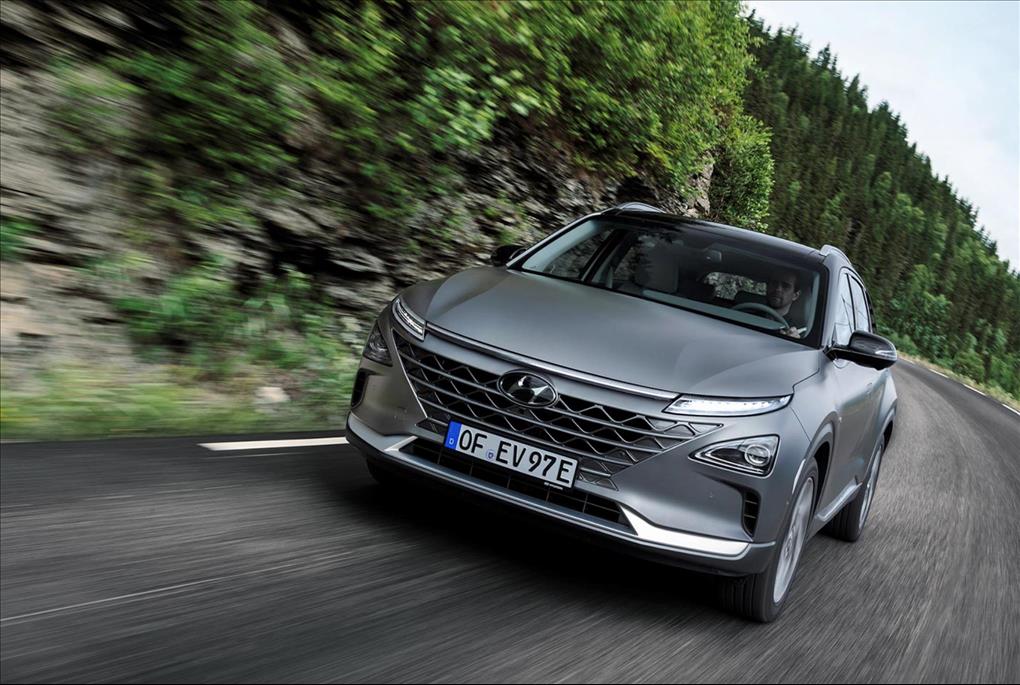
Hyundai backs Guangzhou fuel cell future
(MENAFN- Asia Times) You might say, Hyundai Motor Group is pushing ahead, come hell or high water.
We're talking fuel cell technology, of course.
Already well ahead when it comes to internal combustion, hybrid and battery-electric technologies, the South Korean automotive giant is going full bore, on hydrogen.
According to a report premier automotive website, The Detroit Bureau , Hyundai Motor Group broken ground in Guangdong province in China.
It is, in fact, the company's first fuel-cell system plant beyond the borders of the group's home base in South Korea as it expands its fuel cell business, the report said.
Continuing to hedge their best on new technology, the investment advances Hyundai's global hydrogen leadership and supports its push into China's rapidly developing hydrogen industry, Hyundai executives said.
The company established a dedicated fuel-cell brand , HTWO, in December as part its fuel-cell leadership strategy, the report said.
'The establishment of HTWO Guangzhou marks an important starting point for Hyundai Motor Group's dedicated fuel cell system brand HTWO,' chairman Euisun Chung said in a statement.
'Hyundai Motor Group will actively lead clean mobility innovations using its strategic partnerships, world-class technology, hydrogen business capabilities and related expertise.'

Hyundai's NEXO fuel cell SUV takes tech to a new level in the driver's seat. Credit: Hyundai.
Chung said Hyundai's goal is to lead in realizing carbon neutrality by strengthening production of hydrogen fuel-cell systems, making them available as power sources for various industries.
It's a message he delivered to employees at the start of the new year, the report said.
The new center for production and sales of Hyundai fuel-cell technology carries the name 'HTWO Guangzhou' in line with the name of its dedicated fuel cell system brand.
HTWO stands for 'H2,' the hydrogen molecule.
It also represents 'Hydrogen' and 'Humanity,' the main pillars of the group's fuel-cell business, Hyundai officials said.
The HTWO Guangzhou plant will be built in the Guangzhou development district of Guangdong Province, China, and is slated for completion in the second half of 2022, the rpeort said.
The initial annual production target for the facility is 6,500 units, with a goal to gradually expand production capacity in line with Chinese market conditions and policies of the Chinese government.
Fuel cells work like batteries and can produce electricity and heat as long as fuel such as hydrogen is supplied.
The automaker's been on the leading edge of fuel-cell technology for much of the last decade, the report said.
It was the first to introduce a viable fuel cell-powered vehicle, the 2014 Tucson FCEV, that could actually be purchased — actually leased for $499 a month — by the general public. The company added to that with additional vehicles, like the NEXO.

Auto reviewers have generally praised the NEXO, complementing its 350-plus miles of range from a five-minute hydrogen fill-up and its smooth and silent and torque drive qualities. Credit: Hyundai.
Edmunds.com has praised the NEXO, complementing its 350-plus miles of range from a five-minute hydrogen fill-up, its smooth, silent and torque drive qualities, and its eye-catching SUV-like body styling.
Indeed, the only criticism Edmunds could come up with, was that the infrastructure just isn't there to support a hydrogen vehicle — yet.
NEXO has grown into substantive strategic effort for the company, which announced plans more than two years ago to expand its supply capacity to 700,000 hydrogen fuel cell systems annually before the end of the decade as part of its 'Fuel Cell Vision 2030' strategy, the report said.
Through strategic partnerships with hydrogen, energy and logistics companies around the world, Hyundai has expanded its fuel cell system business with initial focus on major hub regions — Korea, Europe, China and the US.
According to Motor Trend , Hyundai's vice president and head of fuel cell group, Sae Hoon Kim, is convinced of hydrogen's inevitability.
He cites the 60 million or so tons of hydrogen that are currently being produced and safely distributed globally per year for industrial use in the United States.
He's convinced that hydrogen is the most viable clean energy propulsion mode for vehicles sized between passenger cars and ships or planes, in terms of onboard packaging and refueling logistics.

Legal Disclaimer:
MENAFN provides the
information “as is” without warranty of any kind. We do not accept
any responsibility or liability for the accuracy, content, images,
videos, licenses, completeness, legality, or reliability of the information
contained in this article. If you have any complaints or copyright
issues related to this article, kindly contact the provider above.


















Comments
No comment